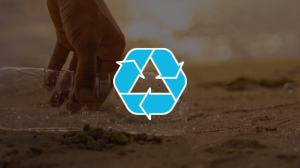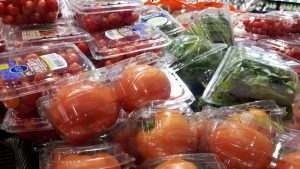Should Governments Slap a Tax on Plastic?
More than a billion tons of it could enter the environment in the next 20 years. It’s time, advocates say, to put a sin tax on single-use plastic.
If you want to discourage folks from doing something naughty, tax the hell out of it. Take cigarettes, for example: On average, in high-income countries you get a 4 percent drop in demand for every 10 percent price hike.
Or consider pollution: Countries like Sweden have begun to tax carbon to fight climate change—basically, you pollute, you pay. And now another grand naughtiness may get hit with its own tax: single-use plastic.
Proponents of the California Recycling and Plastic Pollution Reduction Act are campaigning for a 1-cent tax on these plastics. Brands that hawk them would have to pay a penny for each non-recyclable or non-compostable piece of packaging they sell—plastic bottles, potato chip bags, and all that. The waste-management company Recology filed the paperwork to get the initiative headed toward the California ballot and has contributed $3.7 million to the campaign. Recology is joined by environmental groups like the Nature Conservancy. The group had nearly collected the requisite signatures to get the initiative on November’s ballot, but the pandemic put the kibosh on all that. Now, a Recology official says, they’re aiming to collect enough signatures by the end of this summer for it to appear on the 2022 ballot.
The idea behind the tax is to make it more expensive for the food and personal care industries to keep churning out single-use plastics. If it passes, the resulting revenue, which the state estimates would be on the order of a few billion dollars each year, would be used to shore up litter mitigation efforts and provide subsidies to the recycling industry, which struggles to compete with virgin plastic that’s cheaper than ever to produce, given the low price of oil. Half of the revenue would go toward recycling and composting infrastructure; subsidies would flow to the various players in the recycling pipeline, like curbside pickup programs and the “reclaimers” who process plastic into a reusable form.
In theory, the tax will make recycled materials more competitive with virgin plastic. “It can’t, on its own, make economic sense for a product manufacturer to use recycled, post-consumer plastic versus virgin plastic,” says Eric Potashner, vice president and senior director of strategic affairs for Recology. “The numbers don’t add up, which is why we’re trying to create this subsidy, to try to balance that equation.”



